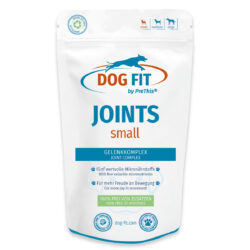Arthritis in dogs
Arthritis in dogs: causes, forms and symptoms explained in an understandable way
Arthritis (Greek ἀρθρῖτις arthrítis, plural arthritides; from arthron “joint, limb” and the ending -itis to describe inflammation) is an inflammatory disease of the joints that can lead to pain, restricted movement and unusual behavior in dogs. Unlike osteoarthritis, which is joint wear and tear, arthritis is primarily characterized by inflammation. It can be acute or chronic and affects dogs of all ages.
Typical symptoms include:
- Swelling of the joint
- Excessive heat and sensitivity to pain
- Stiff or altered gai
- Decreased mobility
Depending on the cause, different forms of arthritis are distinguished – each with its own triggers and characteristics.
Causes: The three main forms of arthritis in dogs
- Bacterial arthritis
This form occurs when bacteria enter the joint – for example, through an injury, surgery, or via the bloodstream. The inflammation often leads to the formation of pus, which can damage the joint cartilage. Bacterial arthritis often occurs in cases of a weakened immune system and is considered an emergency that requires veterinary treatment. - Fungal arthritis
Fungi – especially yeast – can also spread throughout the body and cause inflammation in joints. This form is less common but also problematic, as it is often chronic and places long-term strain on the tissue. - Rheumatoid arthritis
This is a misguided immune reaction. The immune system attacks the body’s own tissue – particularly the synovial lining. The result: a restricted supply of important nutrients to the cartilage. If left untreated, this can lead to long-term cartilage degradation.
Observations in Dogs
If your dog suddenly walks stiffly, joints appear swollen, or behavioral changes occur (e.g., withdrawal, reluctance to go for walks), joint inflammation may be present. A precise diagnosis is made by a veterinarian – often with the help of blood tests, X-rays, or ultrasound.
Attentive attention to your dog’s individual needs, regular exercise, and loving daily companionship can significantly contribute to maintaining your four-legged friend’s zest for life, even with age-related changes. Collaboration with experienced professionals and early adaptation of the living environment help ensure the dog has as much comfort and mobility as possible.

